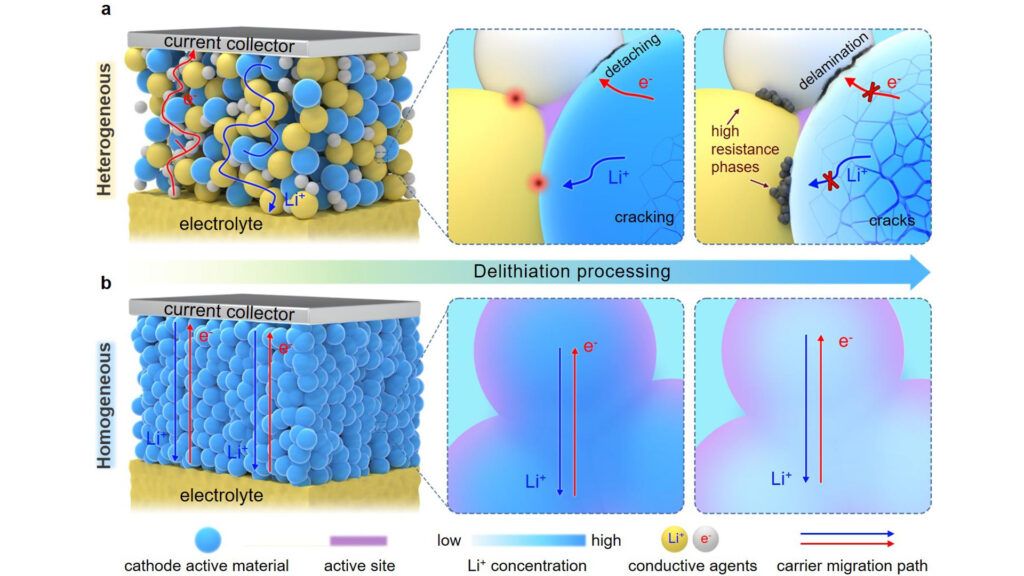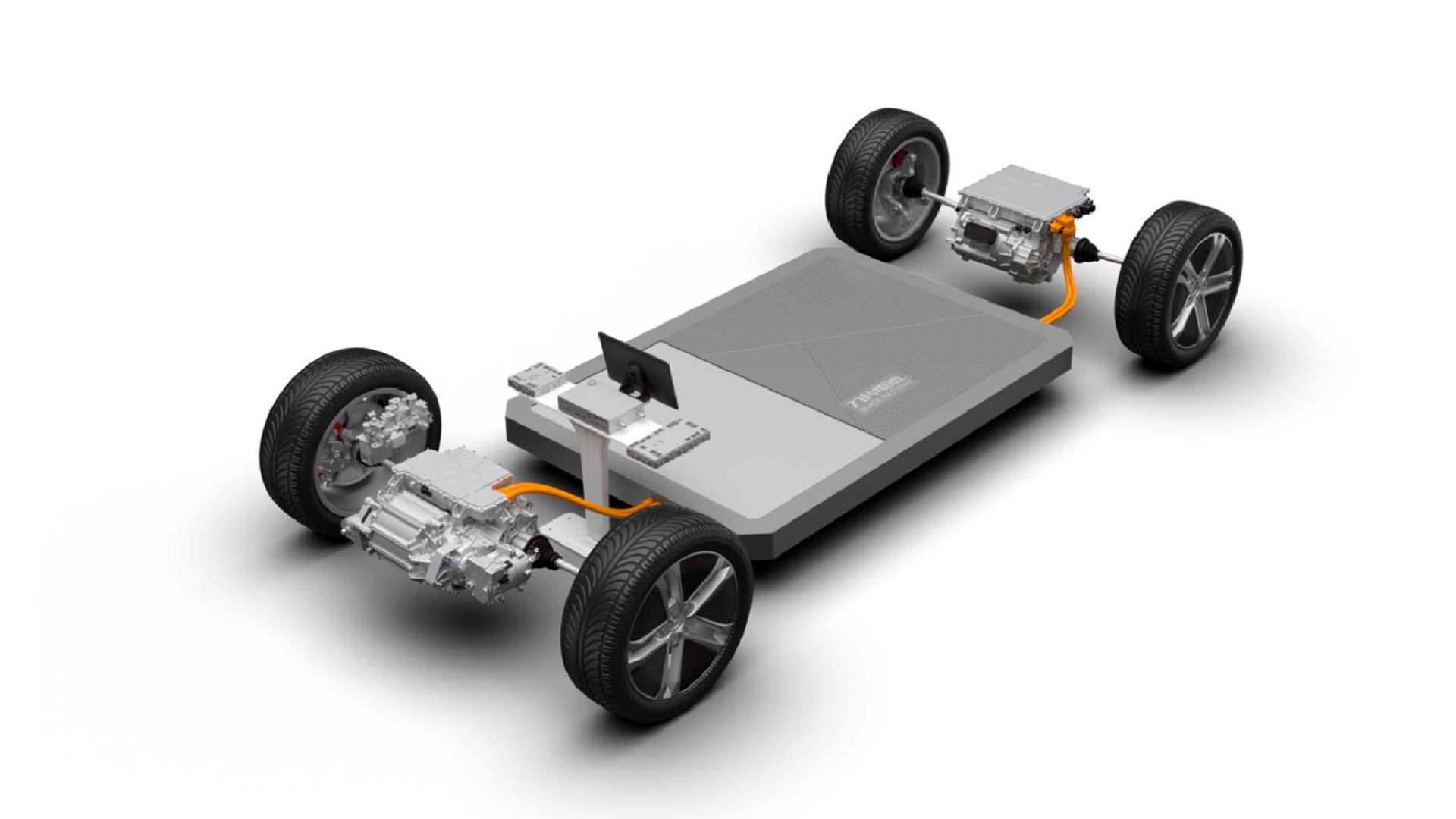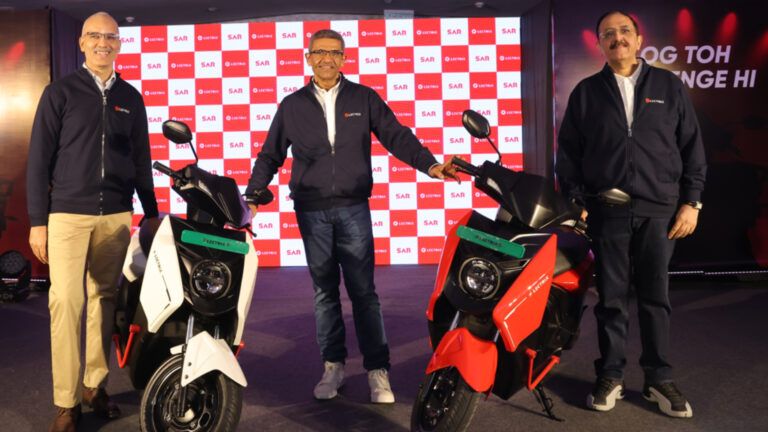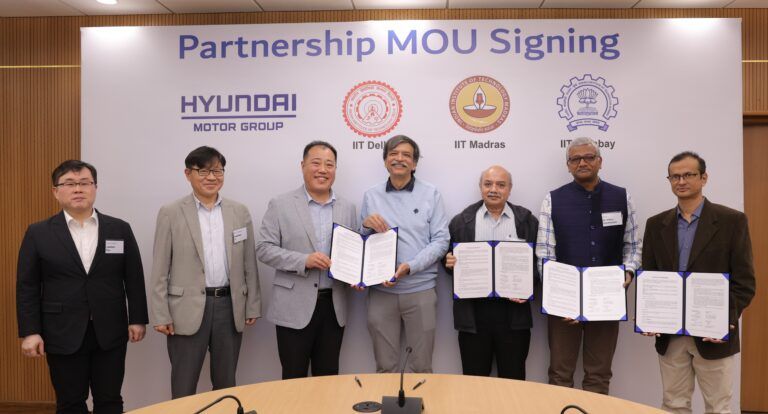A team of scientists in China may have found the next breakthrough in solid-state lithium battery tech. The innovation by the team promises a much enhanced energy density and extended lifespan of the battery. When used in electric vehicles, such batteries can promise a much higher range than the prevalent market average. Such batteries can also allow for improved performance on the electric cars than what we see today.
The new strategy uses an alternative to electrochemically inactive additives that are added to the cathode of the all-solid-state lithium batteries we see today. Although these additives help in conduction, they reduce the energy density and cycle life of the batteries due to their incompatibility with the layered oxide cathodes. Scientists have now found a more appropriate alternative for these.
The Breakthrough Battery Tech
The breakthrough comes from researchers at the Solid Energy System Technology Center (SERGY), Qingdao Institute of Bioenergy and Bioprocess Technology (QIBEBT) of the Chinese Academy of Sciences. In collaboration with scientists from leading international institutions, the new paper published in Nature Energy promises over 20,000 cycles of efficient operation. This marks a significant advancement in battery tech as we know it.
The new strategy involves an innovative cathode homogenization strategy for all-solid-state lithium batteries (ASLBs). It uses a zero-strain material that exhibits excellent mixed ionic and electronic conductivity. This helps the material efficiently transport charges without any need for additional conductive additives that otherwise hamper the battery’s energy density.

In numbers, the new material has a specific capacity of 250 mAh/g and a minimal volume change of just 1.2%. With this, room-temperature ASLBs were found to achieve over 20,000 cycles of stable operation and an astonishing energy density of 390 Wh/kg at the cell level. To give you a perspective, Tesla cars, touted to have the best battery packs in the EV world, offer an energy density of 272-296 Wh/kg.
Future of Energy Storage
Dr Shu Zhang, co-first author of the study from SERGY, remarks that the “combination of high energy density and extended cycle life opens up new possibilities for the future of energy storage.”
Prof. Jiangwei Ju, co-corresponding author of the study from SERGY, further explains its possible implications – “The material’s stability and performance metrics are impressive, making it a strong candidate for commercial applications in electric vehicles and large-scale energy storage systems.”
The breakthrough by the scientists comes with extensive testing and theoretical calculations in the paper. We can thus expect the advancements to soon reflect in commercial batteries that power EVs across the world. With even higher ranges and better performance metrics possible, EVs may soon be way ahead of IC engine vehicles for any possible comparison.
Also read: Fact Check: Horrifying Video of EV Battery Explosion in Lift With Man Stuck Inside








